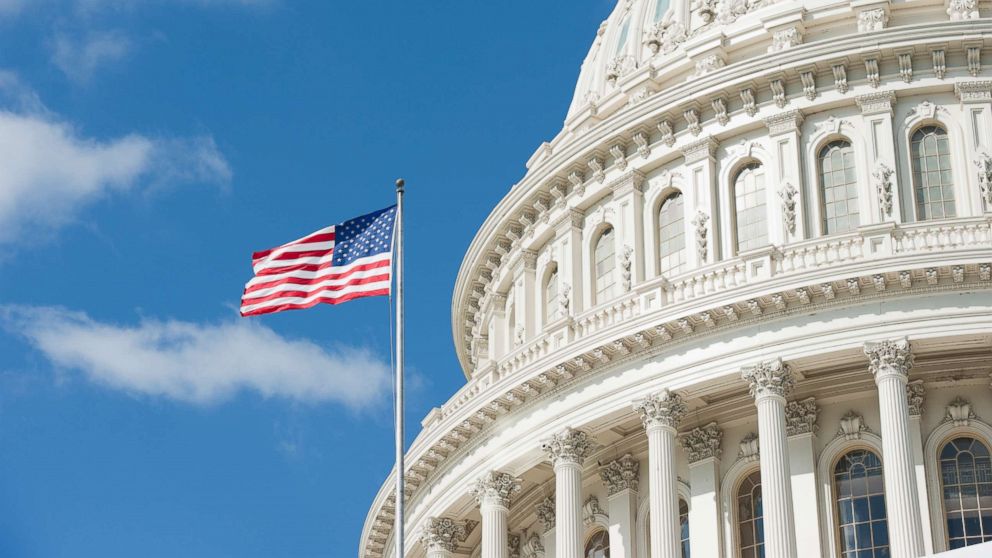Under Trump, Congress has expanded use of controversial legislative tool to 'tear down’ regulations
Prior to the Trump administration, the CRA was rarely used.

The Republican-controlled Congress is poised to use a controversial and – prior to the Trump administration – rarely used legislative tool to dismantle consumer protections designed to keep auto-lenders from discriminating against customers.
The Congressional Review Act had been used only once since its 1996 creation, when the Bush administration opted to revoke a Clinton-era regulation to combat stress injuries in the workplace, but under the Trump Administration, Congress has already used the Congressional Review Act 15 times to overturn regulations it has deemed unnecessary or harmful.
The repealed regulations have run the gamut – including restrictions on coal-mining companies dumping waste into nearby waterways and rules preventing mentally impaired people from purchasing a firearm. Those regulations were originally to go into effect in the last days of the Obama administration, but were repealed before the agencies could take action.
In a scathing report released this week, the liberal think tank Center for Progressive Reform (CPR) is calling for a repeal of the Congressional Review Act, slamming it as a legislative gimmick that has allowed the Trump administration to “tear down” Obama-era regulations they don’t believe in with little to no regard to the consequences.
“I’m very reluctant to throw the phrase money and politics around, but in this case it’s hard to deny,” said James Goodwin, a CPR analyst, who co-authored the report. “It’s scary how recklessly they’ve deployed these things with very little care.”

The Congressional Review Act was enacted in 1996 to give power back to Congress by helping streamline the process for repealing regulations passed by federal agencies. It requires agencies to submit major regulations to Congress and the Government Accountability Office for review before they go into effect. Congress then has 60 working days– as opposed to calendar days – to repeal it.
If the repeal receives a majority vote in both chambers of Congress, the President may then sign the repeal into law, ultimately bypassing the opportunity to stall it in the Senate.
Critics of the practice say that if one party controls both Congress and the presidency, the party can use the Congressional Review Act to cut down regulations at will. In addition, once the Congressional Review Act is invoked, future administrations may be barred from creating similar legislation on the same subject.
“It’s a very expedited process,” said Adam Levitin, a professor at Georgetown Law. “The nature of that summary process is that it tilts very strongly to parties that want to exercise CRA power, and that’s going to be regulated industries.”
Despite their rapid-repeal efforts, Republicans are not the only ones using the CRA to dismantle regulations. Democrats have used -- and plan to use -- the CRA again in attempts to rescind Trump Administration policies.
Proponents, meanwhile, argue that it returns power to Congress, shifting regulatory responsibility away from the government agencies, but Todd Gaziano, who worked across the aisle to help draft the original legislation in 1996 and now serves as chief of legal policy at the conservative Pacific Legal Foundation’s Center for the Separation of Powers, says he is baffled at how it has become a partisan tool, considering it was signed by President Clinton as a bipartisan law.
“Members from any and all parties should be taking accountability for the rules that are issued by these agencies,” Gaziano told ABC News. “What’s surprising to me is that the Obama Administration didn’t seek to have any of the Bush regulations overturned when Democrats controlled both the House and Senate for two years.”
Federal agencies like the Consumer Financial Protection Bureau, a frequent target of the Republican-controlled Congress, occasionally issue “guidance bulletins” to influence how laws should be enforced by governing bodies. The CFPB guidance on auto-lending discrimination, for example, held lenders liable for practicing indirect, discriminatory lending based on race, sex, orientation, color, or any other basis.
Guidance documents, unlike regulations, are not subject by definition to Congressional Review Act rules and not usually submitted to Congress or the GAO for approval. Republican lawmakers, however, when taking up the repeal of the CFPB’s 2013 discriminatory auto lending rule, argued that the guidance letter had never been formally submitted, thus the “60 working days” clock never started.
The CPR says this argument makes potentially hundreds of guidance documents stretching back decades vulnerable to repeal without a full debate.
In issuing the 2013 guidance on auto lending, the CFPB intended to address concerns that poor and minority car buyers were victims of unfair markups by dealers, resulting in inflated car loans they couldn’t afford.

Last month, Sen. Pat Toomey, a Republican from Pennsylvania, argued for its repeal, saying auto buying consumers were actually hurt by the rule. He told fellow lawmakers that the guidance hamstrings car dealers and that fear of being accused of discrimination may “prevent them from being able to discount the interest rate on a loan.”
But Toomey largely targeted the CFPB’s process, saying it “chose not to follow the law” by issuing the rule as guidance rather than regulation. He called the guidance “a convenient way to avoid scrutiny” and review by the public and other agencies.
“I understand people might like the CFPB’s rule, which I don’t, but to suggest that somehow because they issued it through a guidance, rather than through the appropriate rule-making process that we somehow shouldn’t be using the Congressional Review Act is completely mistaken,” Toomey said.
The repeal passed the Senate and is scheduled for a vote in the House on May 7, much to the dismay of consumer advocates.
“The Senate just gave a green light to misleading consumers into paying hundreds or thousands of dollars more for their vehicles than they should have to pay based on their lender’s own estimate of a fair, risk-based price for the financing,” said Christopher Peterson, a senior fellow at the Consumer Federation of America.
If the Democrats retake Congress during midterms, the future of the Congressional Review Act may be uncertain. At least two Democrats, Sens. Cory Booker of New Jersey and Tom Udall of New Mexico introduced legislation last year designed to scrap the practice entirely. A spokesperson for Sen. Booker told ABC News the use of the Congressional Review Act comes at the expense of consumers and working families.
“Abuse of the CRA has allowed Congressional Republicans to fast track the repeal of a host of protections that benefit everyday Americans with little notice or public debate,” the spokesperson said.




